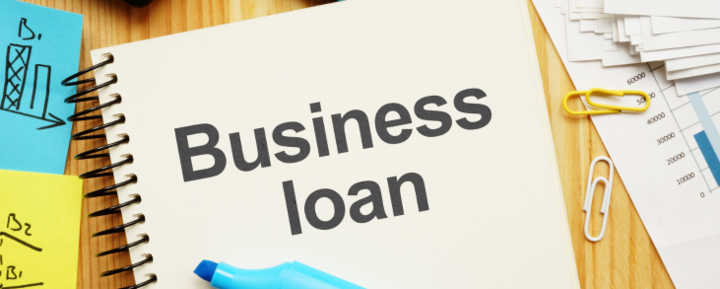Getting sued can be scary — but doing nothing about it is even worse! That typically triggers a motion for default judgment, which happens when you don’t show up to court or enter a motion to dismiss after receiving a summons.
If you’re not familiar with legal terms and feel uncomfortable in court, it might seem easier just to ignore a lawsuit over an unpaid debt, but that strategy will most likely backfire. While there is a statute of limitations on some unpaid debts, a default judgment gives your creditor a lot of tools to collect their amount owing. Knowing how to respond to a motion for default judgment can be the difference between getting your finances back on track now, or going through an even more stressful and lengthy legal process. Here’s everything you need to know about how to respond to a motion for default judgment so you can proactively take charge of your debt collection lawsuit.
What is a Motion for Default Judgment?
A motion for default judgment is a request made by a party in a lawsuit when the opposition has failed to respond and is not participating in the legal proceedings. This motion is a legal request against you made in court. You’ll usually have about 20 to 30 days to respond to a summons if you’re being sued over funds you’ve borrowed that you can’t repay – your specific timeline will be detailed in the summons. If you fail to respond within that timeframe or don’t comply with court orders, the court clerk or judge will record an entry of default, noting that you have not filed any response. The next step is for a default judgment pursuant to the plaintiff’s complaint, this is a court decision that will likely require you to pay your full debt owed.
The plaintiff’s claim in their motion will likely include:
- Relevant facts of the case, such as any debts you owe, previous attempts at debt collection, and when you stopped paying them
- The date the summons was filed and the date by which you were supposed to respond
- The details of the judgment they are requesting. This usually details the specific amount of money the plaintiff is seeking from you
Understanding the Consequences of Default Judgment
A default judgment will likely order you to repay your creditor. If you ignore this order, the judgment can give the creditor the legal right to collect their debt from you. They have a few tools at their disposal to do this, including wage garnishment wherein they can prevent your employer from depositing your pay into your bank accounts.
Judgments aren’t reported to the credit reporting agencies – Equifax, TransUnion and Experian – so they won’t directly impact your credit report. However, they are a matter of public record. Future lenders can readily access this information and it could prevent you from obtaining credit in the future.
This is why it’s important to know how to respond to a motion for default judgment, allowing you to be proactive and avoid a snowballing effect on your finances.
How to Respond to a Motion for Default Judgment
If you have a valid reason, you can petition the judge to set aside default judgment by filing a motion to vacate which, if successful, would allow you to return to court and to contest your debt.
Usually, upon filing, a hearing date will be scheduled for you to present your case before a judge. If the judge approves your motion, the default judgment will be canceled, and the case will proceed.
This is where having an experienced lawyer can be a major asset, because there are specific reasons a judge is more likely to vacate a default judgment and it’s important to highlight the most applicable ones in your response. Here are some reasons a judge is likely to approve your motion to vacate affidavit:
- The judgment has been discharged: This could be the case if you’ve already satisfied your debts
- Error, oversight or excusable neglect: If you have a documented, excusable reason for not responding to the original summons and you can provide proof to backup your claims, this could be cause for a judge to dismiss the default judgment against you
- Fraud: If you believe a default judgment has been fraudulently entered against you, you will need to prepare appropriate evidence to explain your position
Keep in mind, the amount of time for responding to a default judgment is usually somewhat tight. The sooner you file a comprehensive motion to vacate, the better.
Seeking Legal Advice and Representation
An experienced lawyer can help you identify the most useful evidence to present with your motion to vacate along with any counterclaims or meritorious defenses against the plaintiff’s claims. Be sure to keep copies of all your records, including any debts that were paid and the dates they were discharged.
Thinking of getting legal help to respond to a motion for default judgment? Here are some questions to ask potential attorneys before you agree to work together:
- Do you have experience in civil case lawsuits relevant to my circumstances?
- Have you handled cases involving motions for default judgment before on credit transactions? Do you have specific examples of successful outcomes or challenges your clients have faced?
- What is your strategy for responding to the creditor/plaintiff’s claims in the motion for default judgment? What potential outcomes should I prepare for in Court?
- How often will you communicate with me with updates on my legal case? Will we communicate directly or through your staff?
- What are your fee structures and what potential additional expenses should I prepare for when we file papers in Court?
Asking the appropriate questions upfront in a lawsuit can help you determine which lawyer is right for you and create a fruitful working relationship from the outset of your engagement.
Options After a Default Judgment
If you and your lawyer determine that your judgment is unlikely to be set aside, here are two other strategies you can take next:
- Settle the debt: With a debt settlement, you would either repay the debt in part or in full and could pay over time in multiple payments. A debt settlement may be harder to negotiate after a creditor has already secured a default judgment against you, but you might have some negotiating power if you’re able to settle in one lump sum.
- File for bankruptcy: This option should only be used in a worst case scenario, like if you cannot pay your judgment under any circumstances. Bankruptcy can have wide ranging implications for your financial future. If you have many other debts, bankruptcy can be a chance to start over all at the same time. However,
Avoid a Default Judgment in Future
Owing debt can be massively distracting, consuming and confusing. A lot of people tend to ignore their debt, and even ignore opening mail about their debt, because it’s just too overwhelming. That’s why a lot of default judgments happen, and unfortunately they take the situation from bad to worse. Regularly monitoring any legal correspondences and responding to court dates and deadlines in your summons can help you gain control over your situation and hiring the right debt help attorney can be key. You don’t have to do it alone, either. An experienced debt relief attorney can guide you through the process and make it less overwhelming so it consumes less of your energy in the long run.





